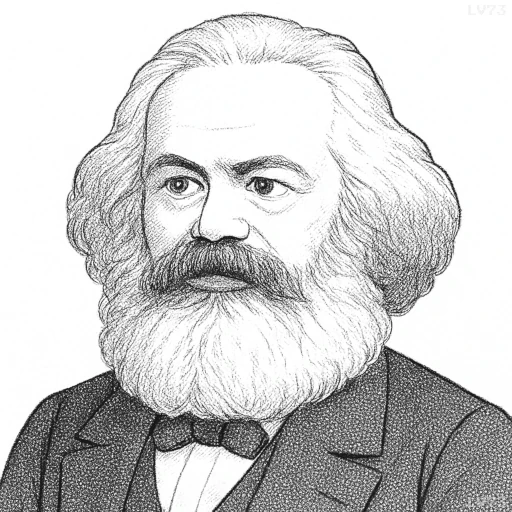“Greek philosophy seems to have met with something with which a good tragedy is not supposed to meet, namely, a dull ending.”

- May 5, 1818 – March 14, 1883
- Born in the Kingdom of Prussia (Germany)
- Philosopher, economist, political thinker
table of contents
Quote
“Greek philosophy seems to have met with something with which a good tragedy is not supposed to meet, namely, a dull ending.”
Explanation
In this quote, Marx critiques the limitations of Greek philosophy as it reaches its conclusion. He implies that Greek philosophy, especially in its later stages, fell short of the dramatic, transformative potential of a good tragedy—which in classical literature is known for its intense conflict and cathartic resolution. Instead, Greek philosophy, in Marx’s view, ends dully, without fulfilling its role in prompting significant social or political change. The great tragedies of ancient Greece, such as those written by Sophocles or Euripides, typically depict a hero’s downfall or the resolution of deep contradictions, but Greek philosophy, in Marx’s opinion, failed to push beyond theoretical inquiry to ignite meaningful revolutionary action or social progress.
Marx’s statement is an allusion to the way in which Greek philosophers, particularly thinkers like Plato and Aristotle, explored profound questions of existence, ethics, and governance. However, despite their intellectual rigor, these philosophers were often constrained by the societal structures of their time, and their ideas did not lead to substantial material change in the world around them. For Marx, this is akin to a tragedy without resolution—the philosophical inquiry remained abstract, rather than becoming the catalyst for social transformation or revolution that he deemed necessary for human liberation. In essence, Greek philosophy did not sufficiently address the material realities of class struggle, exploitation, and the transformation of society in the way Marx thought philosophy should.
In the modern context, Marx’s critique can be seen in the ongoing tension between theoretical philosophy and the need for practical, revolutionary action. Many contemporary thinkers, especially in the tradition of critical theory, continue to debate the usefulness of philosophy when it remains detached from real-world issues like economic inequality, political oppression, and social injustice. Marx’s idea that Greek philosophy ended “dully” serves as a critique of intellectual traditions that fail to directly confront and transform the structures of power that shape people’s lives. It challenges us to think about how philosophy and theoretical discourse can be engaged in a way that leads to concrete, transformative action, rather than remaining a detached intellectual exercise.
Would you like to share your impressions or related stories about this quote in the comments section?

